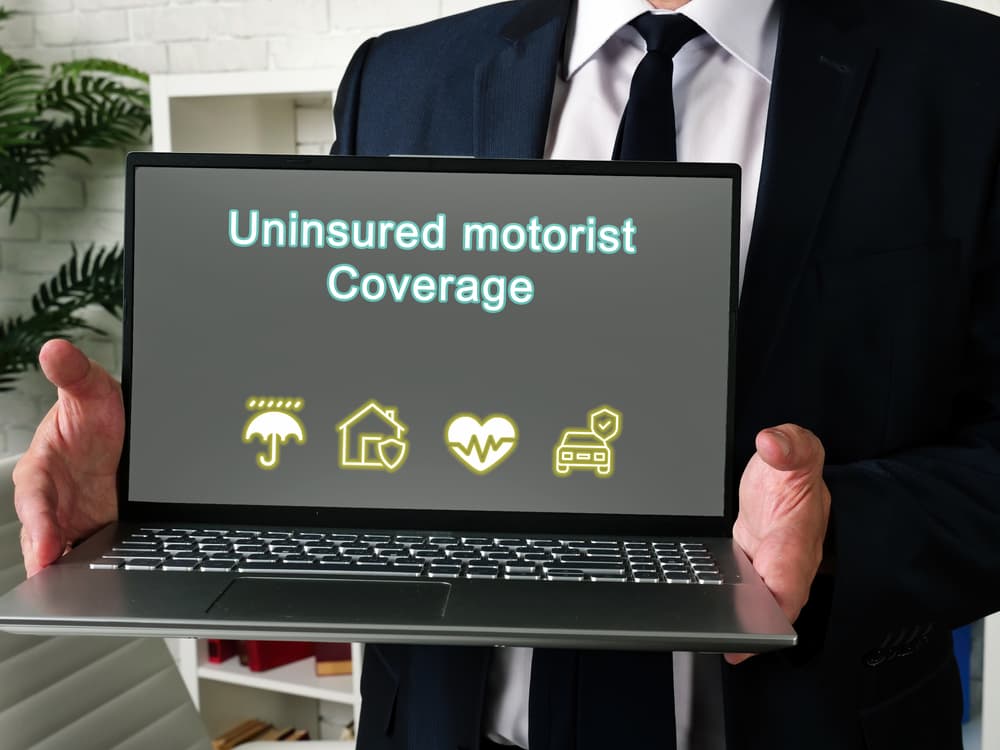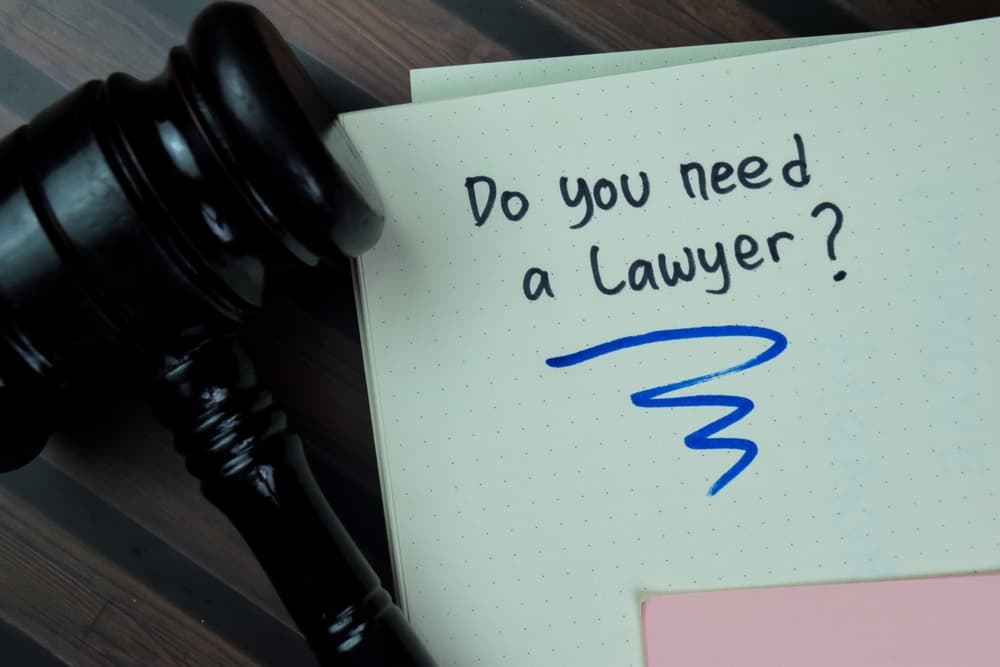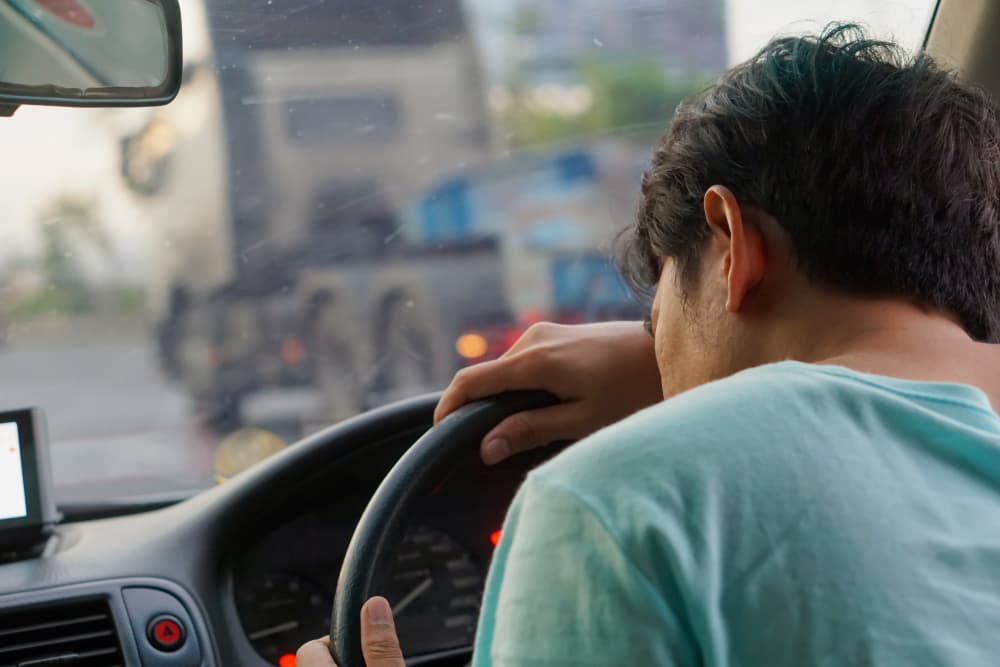Can a company be held responsible if their employee is involved in a car accident?
Yes, an employer can be liable for your car accident injuries. But of course it depends on the situation.
Getting injured in a car accident is already traumatic enough. But when you are injured while completing a task for work, it can bring up serious questions about fault, liability, and how you are going to pay all your bills.
Who is going to pay for your medical care, or the vehicle repairs, or all of your regular bills while you’re out of work?
Filing a car accident claim to get compensation for your damages can provide you with relief. But knowing where to turn isn’t always straightforward. If you were injured while you were on the clock, you should be able to get compensation from your employer or their insurance as long as they can be held reasonably responsible.
When Is My Employer Liable for My Accident?
Your employer can be held liable for a car accident that occurs while you are engaged in work-related duties. Car accidents that happen while you’re en route to off-site company meetings, work-related lunches or dinners, and even paid breaks may be covered under Illinois’ Workers’ Compensation Act.
The same is true if you happen to cause a car accident. Your employer can still be held liable when your actions contribute to a collision.
The question attorneys ask when they are determining if an employer can be held liable for an accident is: “were you acting within the scope of your employment?”.
If the answer is yes, an employee could potentially hold an employer responsible and seek compensation under workers’ compensation benefits.
Types of Employer Liability
Supervisor Liability
Because your employer decides the situation under which you must work, they are considered to have what is called “supervisor liability.” That makes your employer responsible for providing a reasonably safe work environment as well as policies and procedures that are designed to minimize the chance of an accident or injury while working.
In terms of a car accident, employers may have little control over what happens on a public road. However, they can make sure that company vehicles receive regular maintenance and that safety procedures are being followed by all drivers.
For example, to avoid a commercial truck accident, truck companies must ensure that cargo is securely loaded and that drivers are trained well before getting behind the wheel.
Vicarious Liability
Employers hold vicarious liability for car accidents and injuries that happen while workers are performing within the scope of their employment.
Vicarious liability may take the form of an employer asking their assistant to pick up Starbucks for them or a pizza delivery person working on a Friday night. In both instances, the person is performing tasks for the employer that they wouldn’t be doing if they were not required to.
Three main factors are considered in vicarious liability:
- whether employees were doing tasks they were hired to do at the time of the accident
- whether the accident took place within working hours and within a designated working space
- whether the actions were taken to benefit the employer
The third factor is why someone getting coffee for their boss may be able to hold them responsible if they get into an accident. Unlike explicit actions taken that are necessary for work, vicarious liability incidents happen to be irregular actions taken to benefit the employer.
The one time that this rule does not apply is in commuting. While you are driving to or from work, your employer is generally not considered responsible if you’re in an accident during your commute. This is known as the “Going and Coming” rule.
“Going and Coming” Rule
According to the “going and coming” rule, employers are generally not liable if their employees are injured while commuting back and forth from home and work.
Although one could make a good argument that no one would drive to work if their employer did not require it, the rule has been consistently applied in courts.
However, employees are often entitled to compensation when travel is an essential component of their job. For example, some employees work at more than one location, so an accident that happens between job sites is considered work-related.
Similarly, employees who are required to travel for work or are on business trips may be entitled to workers’ compensation benefits if they are involved in a car accident.
What If I’m an Independent Contractor?
If you are injured while working as an independent contractor, you are probably not covered by work comp because you are not considered an employee. This means that if you receive a 1099 tax form, you probably will not be eligible for workers’ compensation after a car accident.
One area of the law that is contested when it comes to independent contractors and car accidents is gig-based driving work for companies such as Uber, Lyft, Doordash, or Postmates.
These drivers, unfortunately, are not considered employees. They are treated as independent contractors and are not covered by workers’ compensation laws if they’re injured on the job. This is because these apps operate like a friend-finder app. They just connect two people that want a service.
Because of this status as contractors, gig service apps are not legally required to offer their drivers workers’ compensation benefits. However, most of these companies do have some type of insurance that covers injuries and property damage in addition to the contractor’s own auto and health insurance policies.
For example, Doordash’s excess insurance kicks in after individuals have exhausted their own policy limits. These major companies’ policy limits vary. The limits are higher when a driver is en route and lower when they’re simply available for a task.
If you’re involved in a rideshare accident or food delivery service accident, an experienced Chicago car accident lawyer can help you to understand your options and rights.
When Would My Employer Not Be Liable?
There are some situations in which an employer is less likely to be held liable for a car accident.
If a car accident happens when an employee leaves work without permission or engages in egregious behavior like drinking and driving, there is little hope for getting workers’ compensation benefits.
Employers also typically won’t be held liable if an employee gets into an accident while taking a long break for personal reasons. Say, for example, you take a few hours off to go shopping in the middle of your work day. An accident that happens during that time is not an employer’s responsibility.
However, a brief detour such as grabbing a cup of coffee is comparable to a reasonable break taken at your workplace so that would typically be covered by the employer.
Help for Employees Injured While Driving for Work
If you were injured in a car accident while you were on the clock, contact an attorney at Abels & Annes. We will advise you about what steps to take based on your specific circumstances and employment. And we will pursue all forms of compensation you’re entitled to so that you get the best settlement available. For a free initial consultation, call us at 312-924-7575 or contact us online.



